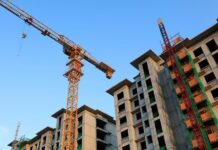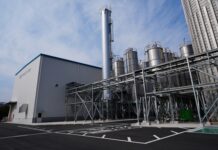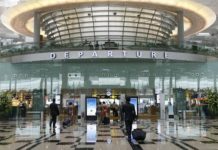Changes are needed in the Saudi Arabian construction market if sufficient volumes of affordable housing are to be built, including new building materials and greater co-ordination between public bodies, participants heard at CW’s Jeddah Infrastructure 2013 conference.
The March 20 conference, held in the Park Hyatt in Jeddah, was moderated by Wael Allan, the Middle East regional managing director for Hyder Consulting.
Estimates vary of the total amount of housing required in the Kingdom, particularly at lower price points. Hani A. Kayal, founder and managing partner of KB Holding, told the conference that with the need to bring housing to market with a SAR500,000 ($133,300) price tag, meeting this would require cultural changes, with a shift away from solid concrete houses, which are more expensive to build.
John G. Spitz, senior vice president in Saudi Arabia of Hill International, said that affordable housing in the Kingdom could receive a boost if new materials were introduced, such as using cold-formed steel and lightweight pre-cast systems for cavity walls.
“If they can be acceptable through the municipalities, it will open up the market that’s really needed for affordable housing.”
Also discussed at the conference were the possible advantages of Saudi Arabia copying Qatar’s establishment of a central planning office (CPO), in order to bring about greater coordination between municipal authorities and other bodies.
Steven W. Miller, senior VP of business development at Shapoorji Pallonji, said that residential developments in the Kingdom that include affordable housing must be made more attractive to international contractors. Miller estimated that across the Kingdom there may be demand for as many as 4 million housing units.
With Shapoorj Pallonji involved in 14 different markets, including in Middle East, Africa, Asia and India, Miller said that Saudi Arabia sits at the top of the list for demand for housing, along with Egypt.
Speaking with ConstructionWeek on the sidelines of the conference, Dr Anas Saleh Serafi, director general of Abnia Consulting Engineers, praised Wahat Makkah as a successful model for sustainable housing projects in the Kingdom.
The development, inside the holy city of Makkah, consists of 5,000 new housing units – of which 30% are designated as affordable, with a fixed price.
The affordable units are allocated through a lottery, due to the high demand. The other 70% of the units are to be priced by the developer, who was allocated free land to carry out the project, said Serafi. The total price of the Wahat Makkah development was priced at SAR 1.5bn (S400m), awarded to Al-Khayalah Al-Arabia Group, and includes schools, malls and hospitals, according to a report in Arab News.
Also at the conference, Roger Nickells, regional managing director of Buro Happold, presented on station designs for the Makkah-Medina high speed rail project. The process included extensive modelling of air flow for cooling, as well as passenger movement.
Nickells’ presentation also generated spirited discussion about the appropriateness of the high speed rail link’s facilities for pilgrims during the Hajj and Umrah.
Dr Abulgader Othman Amir, vice mayor for strategic planning & chief planner, Jeddah Municipality, spoke about the modelling systems used by the municipality to regenerate slum areas in Jeddah, based on principles of access.
The conference also heard from Saudi Binladin Group’s Dr Fuad A. Rihani, on the topic of SBG’s centre for advanced project support (CAPS), and Alessandro Borgogna, vice president, Booz & Co, on research the company has carried out on the challenges of delivering mega projects.
































